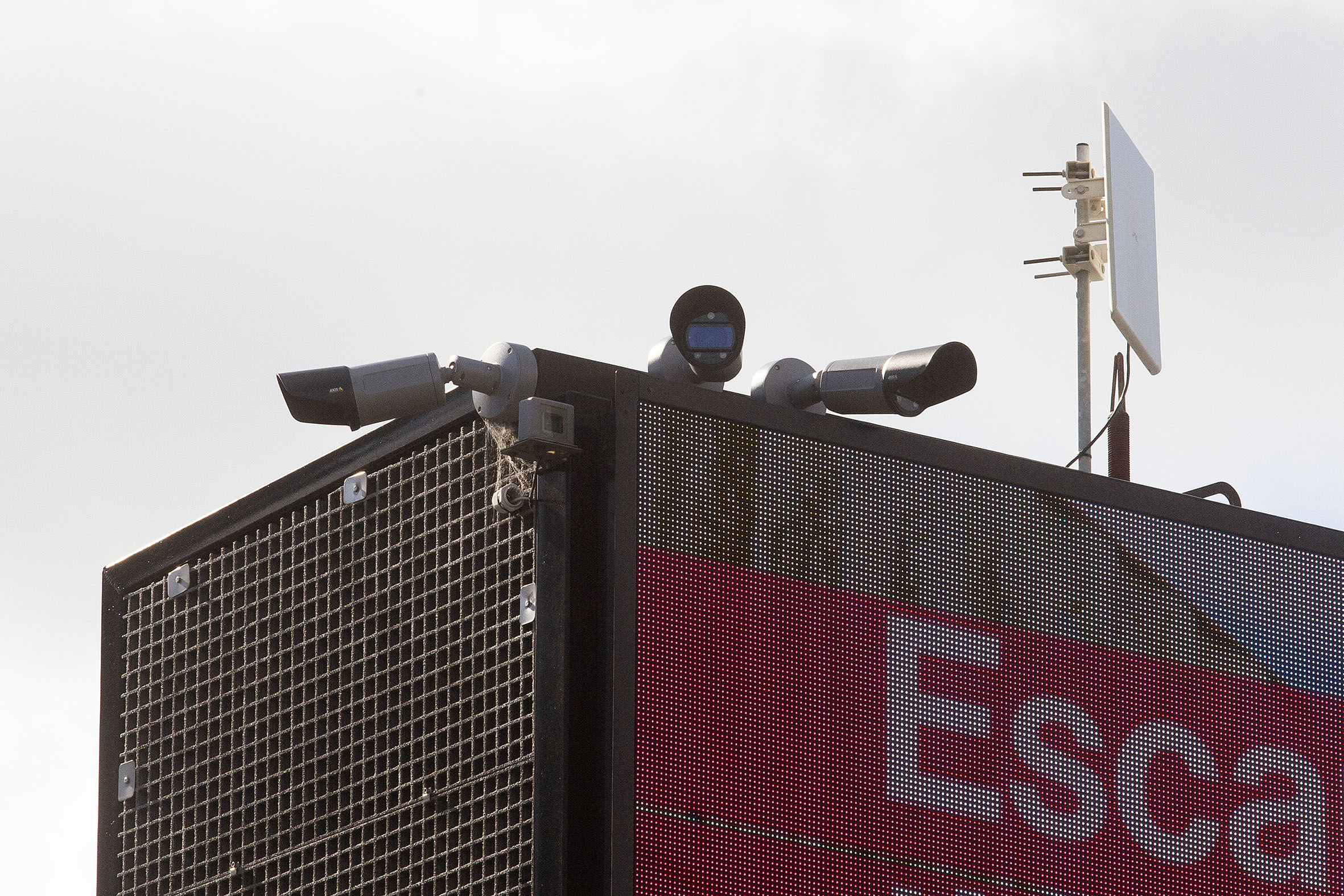
They have raised concerns from Christchurch privacy lawyer Kathryn Dalziel, who says they add to the narrative people are increasingly being watched.
But LUMO, the digital outdoor advertising business that installed the billboards, says people should not being concerned, as the billboards do not breach privacy laws and no personal information is being collected.
The two billboards sit at the beginning of the Blenheim Rd overbridge and on the corner of Brougham and Colombo Sts.
Six more LUMO billboards will be installed across Christchurch over the next five months.
They have cameras installed by company, LENS, that capture nearly 100 per cent of the number plates of cars driving past.
The frequency of the vehicles that pass the billboards is recorded and LUMO pays for information from NZTA on the make, model and year of vehicles that have their number plates scanned.

Said an NZTA spokesperson: “The Land Transport Act (sections 236 and 237) outlines that any person may apply to the registrar for access to information on motor vehicles, provided the application is made in accordance with any regulations made under that part of the Act, and is accompanied by the prescribed fee.
“This information is not ‘sold’, it is provided for a prescribed fee set on cost recovery basis.”

Said Dalziel: “It’s that big brother, it’s that 1984, absolutely.
"It can have quite an impact on people who experience paranoia, or that just really have an overwhelming sense of being an introvert and things like that. That can be just another thing that means that they don’t want to go outside.
"I don’t think they’re breaking the law . . . the one thing I will say, though, is that there is a privacy principle that says you should only collect personal information from someone if it is necessary for your purposes.

LUMO chief executive Phil Clemas said people should not be concerned because the cameras are not being used to gather any personal information about people, just their number plates.
“We’re not collecting any personal data at all. The camera is collecting audience data and it’s very legal. We wouldn’t be doing it if it was illegal.
“It’s being used in a legitimate way to justify the advertising spend or marketing spend and there’s no personal data collected, there’s no personal data used, so I don’t see what the issue is."

“The minute it is data-matched, it is my personal information. If you now know something about me, Kathryn Dalziel, as a result of my number plate, then it is my personal information."
LUMO’s website says, on average, 31,665 vehicles a day are recorded by the billboard cameras on Blenheim Rd and 45,404 by those on the Colombo St billboard.
LUMO has 26 billboards recording this information across different New Zealand locations.













